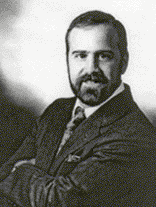
|
High Self Esteem Not Enough for Micro Nations A World Class Contradiction
Hutt River Principality Charge d'Affaires for New England/USA Micro Nations are held to a higher standard than others in their quest for international recognition. As individuals we are taught to accept ourselves for who and what we are. We are encouraged to be proud of our integrity and value our accomplishments without seeking the approval of others. We cannot find contentment and peace within ourselves until we accept and embrace all the good and not so good qualities that make up our personality. High Self-Esteem is learning to accept ourselves first then seeking approval from others. This approval is always welcome but not necessary for self-actualization. Not so with micro nations and small emerging states. It appears that larger established countries have a more self-serving philosophy, a world class contradiction. I was saddened when a career diplomat from an established country questioned the intentions of a micro nation and then asked "why?" The Montevideo Convention of 1933 clearly spells out guidelines for emerging states and micro nations. Even when the guidelines are clearly met, additional questions and restrictive interpretations continue to arise from established powers that not only prevent admission but, more appallingly, prevent consideration. This leads us to the larger more compelling question; why should we seek membership and international acceptance to be considered a "legitimate" state? Should they be content to be denied their entitled status without seeking inclusion? It was evident that this UN member state had become part of the "good old boys club", and acknowledging the existence of a legitimate micro state would have to be trial by fire.
Are these countries less entitled to respect or a voice in world affaires? Are they so small that they can be dismissed as a non-entity? Is a strong military presence, terrorist activity, or show of force required before a microstate is taken seriously? Prior to the establishment of the United Nations, which is only about 50 years old, small countries had alliances and did the best they could defending their sovereignty with natural barriers and standing armies. Why is the posture of peace not an acceptable policy? Micro states often mean micro economies. It seems that paternal neighbors do not take those countries that desire autonomy and have the ability to be self-sufficient seriously. Some countries have become wealthy because they have Internet economy or casinos to sustain them and are taken more seriously. Many US corporations now have assets and business volume larger than GNP of many countries. In our ever-shrinking world due to technology advances success can be realized by small states if allowed to peacefully pursue their goals and objectives. Established states are often the roadblock for progress and growth for micro nations despite decades of established international law designed to obviate this kind of behavior. Why should nations be denied the entitlement of sovereignty set up by international law without violent confrontation? ©2003 MiddlesexMedia.Com (Posted November 2003) Dr. Anthony G. Ziagos, Sr. is a publisher and photojournalist from Massachusetts. He is a licensed Doctor of Naturopathy and is currently serving as the Charge D'Affaires for New England - USA, of the Hutt River Province Principality located in Western Australia. He is also Deputy Member of the National Assembly and Minister Delegate for the Commonwealth of Massachusetts for the International Parliament for Safety & Peace, an Intergovernmental Organization based in Europe. 2000 © Hellenic Communication Service, L.L.C. All Rights Reserved. http://www.HellenicComServe.com |

